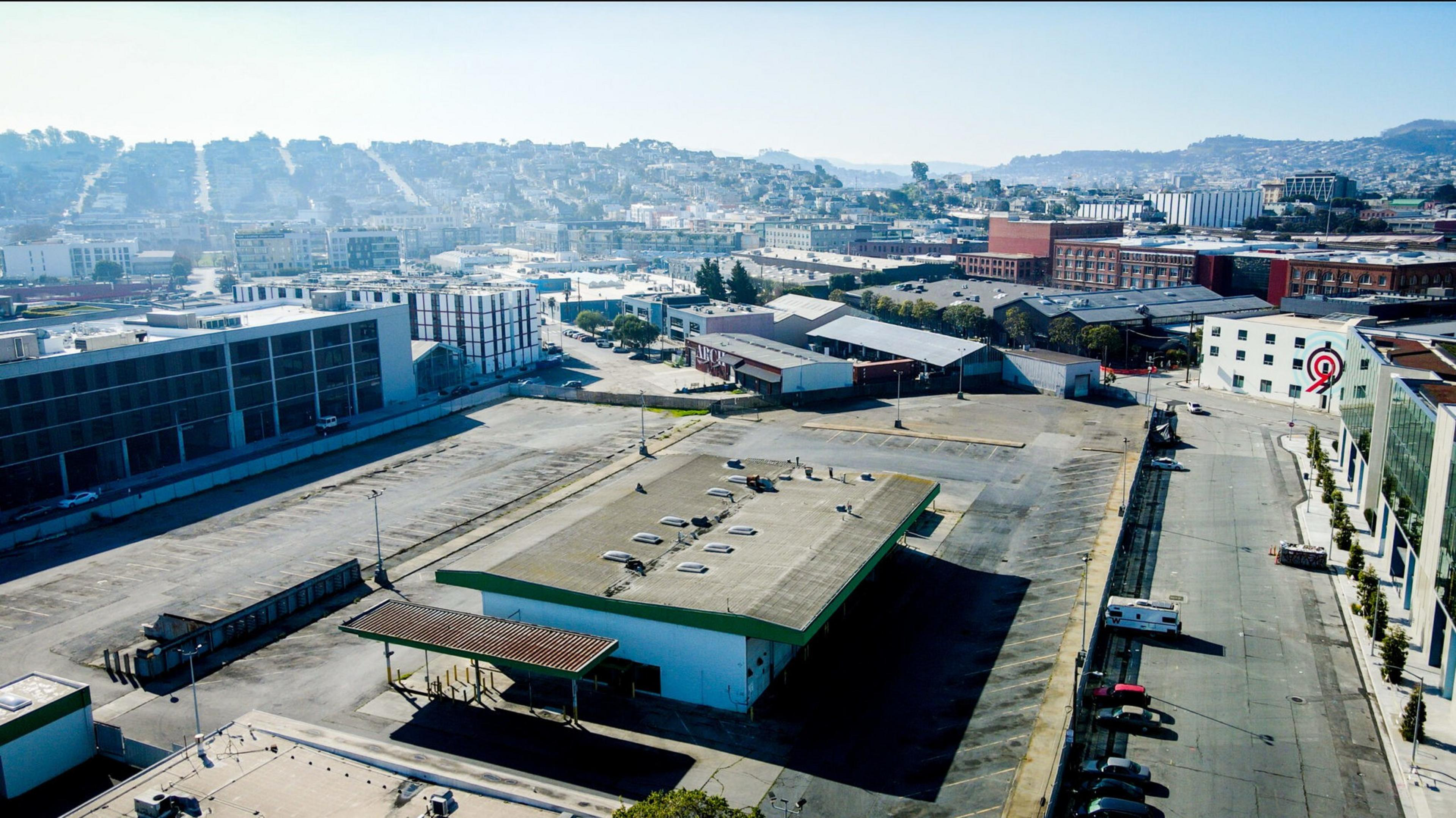San Francisco Mayor London Breed’s office quietly inked an agreement with Amazon.com Inc. last September to begin negotiating terms for the company’s proposed delivery hub at 900 Seventh St., according to documents obtained by The Standard through a public records request.
The “memorandum of understanding” (MOU) with Amazon signals significant support at City Hall for a project that’s expected to face stiff opposition from labor unions, neighborhood groups and other stakeholders.
The agreement calling for the company and the city “to cooperate in negotiating the substance of a public benefits package” for the project was signed by Kate Sofis, the director of the city’s Office of Economic and Workforce Development (OEWD), the city agency responsible for hashing out development agreements that benefit the city. Amazon agreed to pay the city up to $250,000 for the time the OEWD and the City Attorney spend working on the deal. The MOU is non-binding and can be abandoned or altered at any time.
Such agreements are not unusual. But several top city officials said that they were surprised and upset to learn about the deal only now, and that it was inappropriate for official negotiations on such a controversial project to be kept quiet and exclude other stakeholders.
“I am not surprised that Amazon would try to come into the community without working with residents, businesses, and everyone that will be affected by their presence,” said Board of Supervisors President Shamann Walton, who represents the district where the property is located. “I think it signals that Amazon is an irresponsible neighbor.”
The Mayor’s Office did not respond to repeated requests for comment made Friday and over the weekend.
Amazon acquired a 6-acre site near the mouth of Mission Creek from trash-hauler Recology for $200 million in December 2020. Once the site of a proposed mixed-use development that would have delivered up to 1,000 units of badly needed housing, Amazon now wants to use the property for a “last-mile delivery station” that would employ up to 500 people and help speed delivery of packages in the city, according to a company presentation.
Sofis, before joining OEWD, had led SF Made, an advocacy group for locally manufactured brands, and had expressed support for Amazon’s purchase of the property. She did not respond to emails seeking comment.
Stephen Maduli-Williams, Amazon’s San Francisco-based manager of economic development policy who documents show is representing the company in negotiations with the city, did not respond to an email seeking comment.
Amazon has increasingly run into local obstacles around the country as it expands its massive footprint of warehouses, distributions hubs, offices and data centers. The company canceled plans for a second headquarters in New York in 2019 in the face of local opposition, though the San Francisco project is much more limited.
The company has also been fighting union efforts to organize its workers, and that’s expected to be a major issue in labor-friendly San Francisco. One local union, United Food and Commercial Workers Local 5, has already been organizing neighborhood groups and other labor unions in response to Amazon under a coalition called the San Francisco Southeast Alliance (opens in new tab). Jim Araby, the organizer who has led that campaign, said the union had no comment.
Kim Tavaglione, executive director of the San Francisco Labor Council, did not respond to a message seeking comment on Friday.
Amazon first submitted (opens in new tab) plans for the 650,000-square foot, three-story delivery station in February. Under state law, the project requires an environmental-impact review as well as a public approval process before the Planning Commission. It’s unclear when that process might begin.
The memorandum of understanding designates OEWD as the “lead representative of the City in negotiating” with the company. It specifies: “As currently envisioned by Developer, the Project would not require the approval of a special use district, planning code and zoning map amendments, or the establishment of project-specific design guidelines. The Project will likely involve agreements related to workforce development and other public benefits, which may require review of other City agencies.”
The fact that the agreement was signed without the knowledge of city staffers and elected officials is stoking suspicion that Breed is willing to support Amazon at the expense of organized labor, neighborhood groups and other interests.
“It would have been nice to know the administration entered into it,” said Supervisor Aaron Peskin, who helped negotiate the complex land-use plan in the 2000s that kept the Seventh Street site zoned for warehouse use—a choice made then to preserve blue-collar jobs in San Francisco.
Now, almost 20 years later, with the city’s income inequality much worse, Amazon’s low-paying delivery jobs, which would not allow workers to afford housing in the city, are much less appealing.
“It just feels a little janky,” Peskin added, “because, basically, it’s a sign that labor, and traffic, and environmental impacts to brick-and-mortar businesses are all being ignored and Amazon is being embraced.”
Pay starts at $17.25 an hour for Amazon employees at delivery stations, and delivery drivers, who work for third-party companies, start at $21 an hour, according to a summary of a “town hall meeting” led by Amazon and conducted over Zoom in November.
Amazon already has three other sites in the city: 749 Toland Ave., near the produce market in Bayview; 435 23rd St.; and 888 Tennessee St., where the company employs 502 people, half of whom are “coming from San Francisco zip codes,” company officials said at the meeting.
Correction: An earlier version of this story incorrectly stated that the city’s Office of Economic and Workforce Development was part of the Mayor’s Office.
